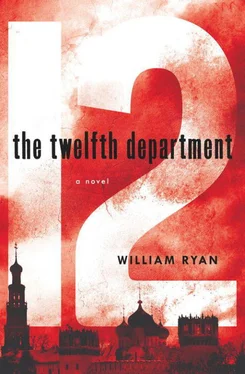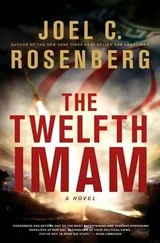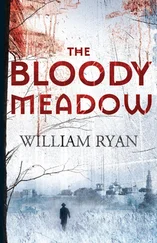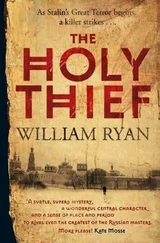“Did he give details?”
“Yes, but—well—it was State Security business. I knew nothing could be done, except at the highest level.” He pointed a finger at the ceiling, and Korolev wasn’t sure whether he was referring to God, Stalin, the devices in the ventilation system—or perhaps just the person who lived upstairs. It was that kind of building.
They sat there for a moment, looking at each other. Both of them, Korolev suspected, uncomfortable with the direction the conversation had taken. Korolev prayed it wasn’t being listened to.
Weiss sighed. “Look, Korolev, the fact is there are too many scientists taking short cuts these days. It’s one of the problems with Five Year Plans—science doesn’t develop according to a strict schedule or a set objective. It meanders along, finds its own path. It helps if you think you know where you’re going, but sometimes it’s what you see on the way that turns out to be the key that unlocks the door to an important discovery. And what you thought you were looking for turns out to be irrelevant, as often as not. Science is full of happy accidents. As for what was being researched at the institute—if what I’ve heard is true, I doubt it’s possible, or desirable.”
“I’d treat any information you gave me with complete discretion,” Korolev said, more in hope than expectation.
Weiss gave a short laugh—not one of amusement.
“Discretion? For all my talk, I know the limits of discretion these days, particularly when matters such as this are concerned. Still, I’d like to help.”
Weiss seemed to consider how this might be done, and Korolev had to restrain himself from pressing him.
“The thing is,” Weiss said eventually, “you never know these days whether certain information is dangerous to disclose, or whether it’s perfectly safe to do so. I’m not just talking about myself, of course, but my family. And others as well. Then there’s the institute itself. Vasin, a fellow who worked in the office next to mine at the university until a few months back, also worked at Azarov’s institute. But then you see he was arrested, and I didn’t ask why; no one does these days. Shtange worked there and he’s dead. Azarov himself is dead. So all that doesn’t reassure me. And who is to say that any information I have, or any suggestion I’ve heard, is true. Even if it were, the Party takes a wider view of these things than I can—rightly so. May I consider this for a little while, discuss it with someone I trust, and—how can I put it—review what I may or may not know, and the information I may or may not have? I want to be cooperative. I feel it’s my duty to be cooperative, but I can’t rush into this. I have responsibilities to others—you know the way things are.”
He picked up the toy plane again and Korolev knew what he meant by “responsibilities.” If Korolev was in his shoes he’d have the same misgivings about passing on sensitive information concerning the institute. But Korolev had his own responsibilities. He might not be able to force Weiss, but he could at least remind him of his obligation to the dead man.
“I’d be grateful if you could have your discussions as soon as possible,” he said. “Dr. Shtange helped you out of a tight spot. I think you should remember that.”
The former Ivanovsky Convent had been a place of religious worship for several centuries before it had become home to the Moscow Militia’s Central Forensics and Technical Department. The bookcases and filing cabinets that surrounded the desks where Sergei Ushakov and his team worked were weighed down with microscopes, piles of reference manuals, mysterious machines with foreign lettering that ticked ominously, plaster casts of various dimensions, boxes, bags, and the Lord alone knew what else—but behind the shelving and the drawers and their multifarious contents, a very different world was represented in the murals that adorned the walls. Here, small scurrying figures ran either toward salvation, or from damnation, while angels watched calmly from the sky. Over there an ancient city was surrounded by high walls from which mail-coated soldiers stared out at a white-flecked sea. What were they waiting for, Korolev wondered. If his mother had still been alive and standing there beside him, she could have told him—no doubt of it. Most likely she’d also have been able to put a name to each of the bearded saints, one alongside another, row upon row of them, their haloed heads stretching up to the domed ceiling.
“I wonder why they never repainted this place?” Korolev asked, surprised the decoration had lasted the twenty years since the Revolution.
“Culturally significant, so they said. We had to ask permission to put electric lighting in.” Ushakov pointed to the three large lights that dangled from the ceiling. “The electricians had to be watched over by some art historian. I can’t remember who painted it all, someone who knew what they were doing, no doubt.”
Korolev nodded, feeling comforted by the hundreds of sympathetic eyes gazing down at him, following his every movement. Fearing for his eternal soul, most likely.
“You got my message?” Ushakov said, and Korolev saw that his expression was unusually grave.
They were the only two in the room and Korolev had the sense that this was deliberate on Ushakov’s part. He took a seat.
“Yes, the new doorman at Leadership House passed it on. Here, I have some fingerprints I need you to look at for me. If you lifted them from Shtange’s apartment, then we have a winner. At least for Dr. Shtange.”
Ushakov took the fingerprint card Zaitsev had provided and read the name.
“Priudski? That fellow who was hanging around the professor’s place? He’s in NKVD custody?”
“It seems so.”
“I see. We had these already, you know.”
“State Security were kind enough to give me a copy to pass on again, just in case.”
“That’s kind of them, I have a few things for you, as well,” Ushakov said, but Korolev hadn’t finished. He pulled out Chestnova’s small recepticle, with the bullet rattling inside it, and the brown paper bag containing the three apple cores.
“This is the bullet Chestnova pulled from Azarov’s head,” he said, handing it over.
“Is it, now?” Ushakov took it from him and unscrewed the lid. Then he pulled a small set of weighing scales across the desk and decanted the bullet onto a small brass plate before adding tiny weights to the other side.
“It’s an unusual bullet. We don’t produce ammunition like it in the Soviet Union—but your Sergeant Belinsky sent over the firearm certificates they had in their files for the building yesterday. One of the guns is a match—an up-and-under Derringer, owned by one A. A. Bramson. Two barrels—two shots.”
“Bramson? A Bramson lived in Azarov’s apartment.”
“A coincidence, isn’t it?”
More than a coincidence, thought Korolev, given that Azarov had apparently denounced the former occupant in order to obtain the apartment. But Bramson and his wife had been arrested over a year before.
Ushakov picked up the firearm certificate from a small pile of papers and passed it to Korolev.
“A Derringer isn’t much good at a shooting range—its muzzle velocity is less than half of a Nagant’s, for example. Also these bullets most probably were manufactured before the Revolution—or maybe even before the German War. That’s why such a large-caliber bullet barely dented the table.”
“Yes, Chestnova said she was surprised by how little damage the bullet did. Inside his head, that is.”
“It will kill a man if it hits him in the right place from close up—which, of course, Professor Azarov is proof of.”
Читать дальше












